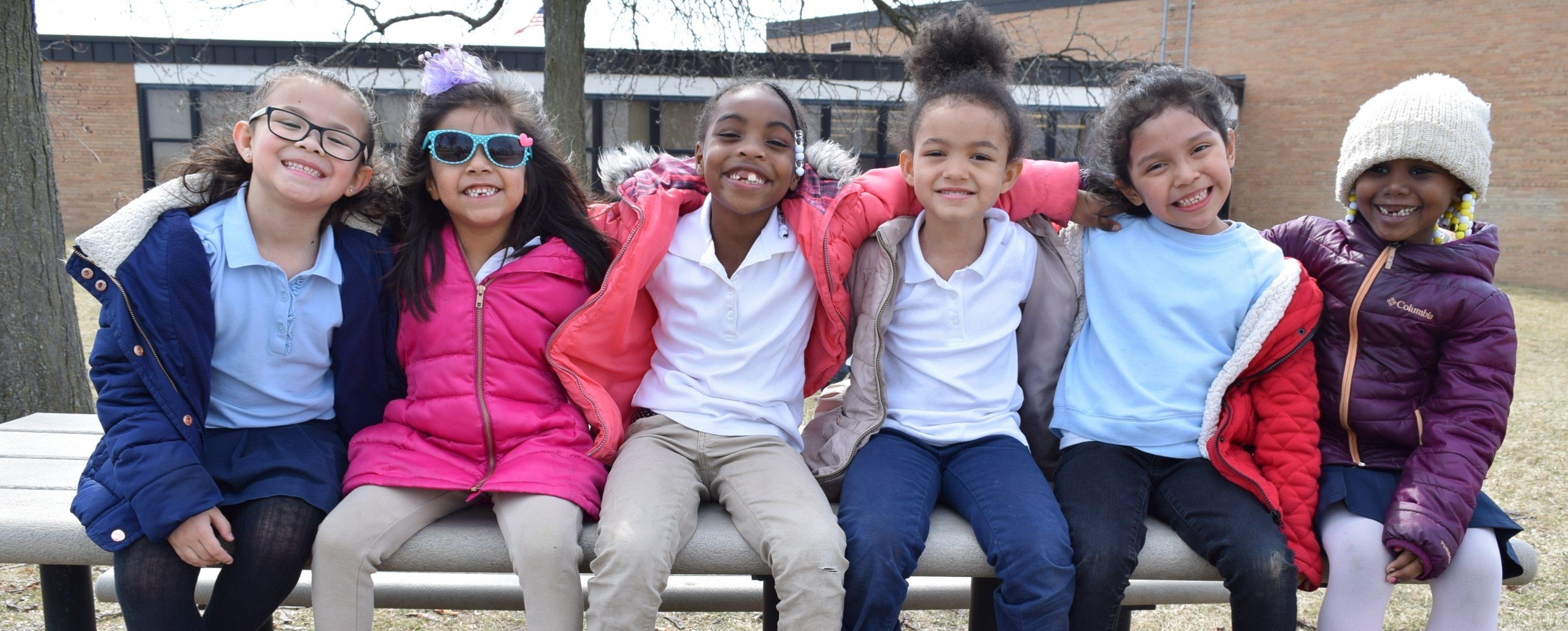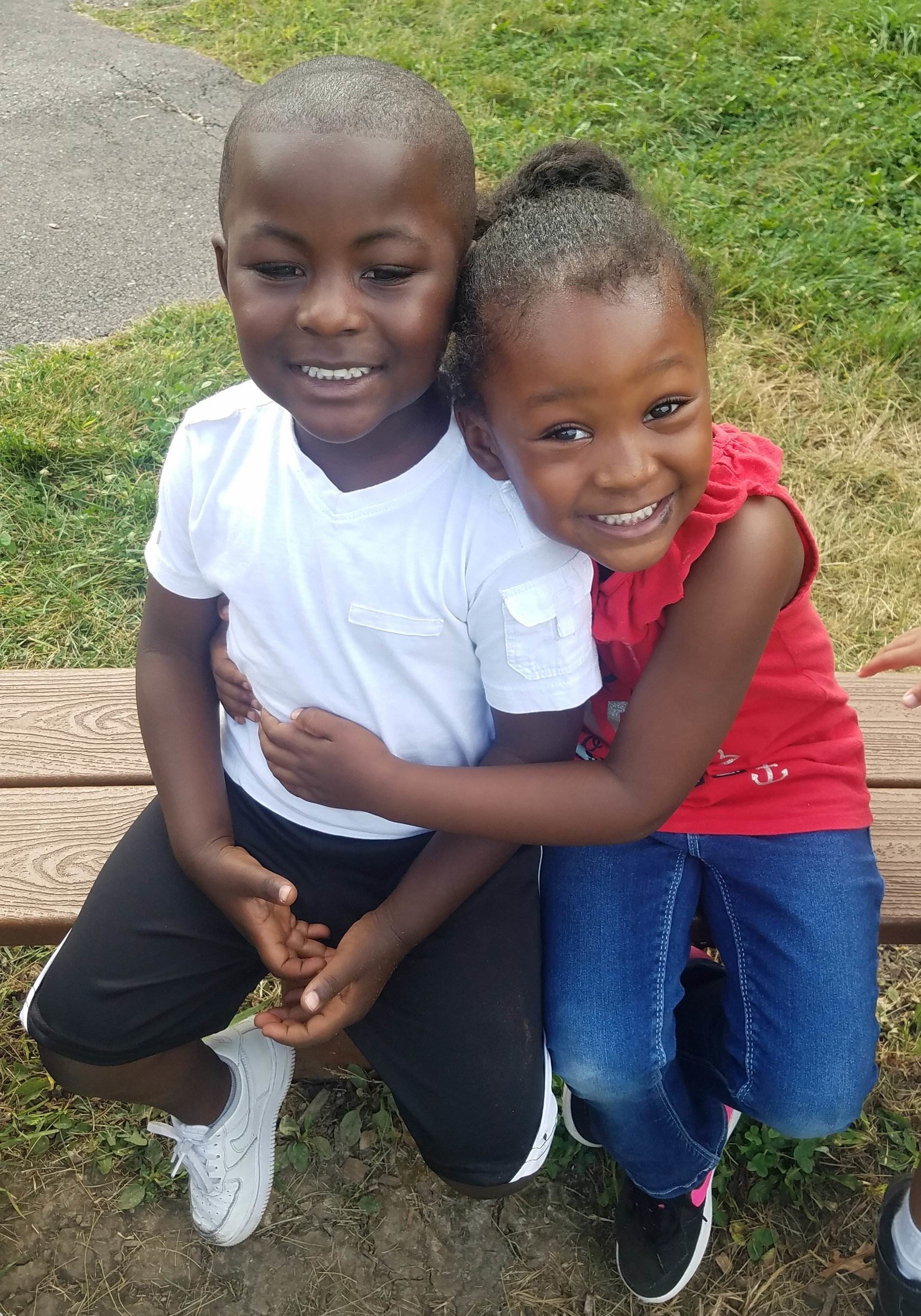Principal’s Perspective

Excerpts from a Conversation with Inez Mitchell, Principal, Forrestal Elementary
What is Kindergarten like in North Chicago?
I’m so excited about what we’re doing in District 187 Kindergarten. We have a research-based, play-based program, which means children are learning through the world of play.
Some may think, “Oh, play isn’t organized; it’s not work.” But play is their reality: it’s where children are at, doing what they really know how to do.
Forrestal Falcons are respectful. Falcons are safe. Falcons are responsible. So, how do children learn how to be respectful, safe, and responsible? They learn through play. They play with each other and individually. They communicate and ask questions.
We’re building on who they are, giving them opportunities to learn through their world.
How do the children respond?
Children select the kitchen, blocks, dress up, play-doh… Each activity builds skills. They’re playing with letters and building literacy. Children explore what they really want to do.
Many children are curious about this grown person—their teacher—playing with them, asking them questions about what they’re doing. The teachers are interested in what they’re doing, which gives the children a feeling of comfort and security.
We’re developing a child that says, “I can,” not “I can’t.” When students feel that they can be successful, adults can challenge them, and they’re going to take that challenge.
How do teachers like this way of teaching?
Teachers learn so much about a child through play, as they build relationships. They can then plan for the student’s needs, based on where a child is at and where we want to see the child grow. What language skills do they need? What social skills do they need?
What’s a favorite part of your day as principal?
I really love greeting students every morning as they enter school. I offer hugs and tell them “I’m glad you’re here!”
I also enjoy being in classrooms. Sometimes they’re dancing and I’ll jump in and dance with them. I see children talking about what they’re building with blocks, saying, “It’s going to fall, we need to put a block here!” When it crashes, there’s no argument, just a simple, “We’ll just have to rebuild it again!”
How wonderful: they’re learning to be respectful and be responsible.
What are you proud of?
I’m proud of our teachers. They participate in the best professional development available about what’s best for children. We have opportunities to visit and learn from other school districts. We work together to build a community of educators.
I’m also proud of our students. They’re successful. There are no big I’s or little you’s: we’re all important to each other. Our students know, “I’m special, my teacher knows I’m special, and the principal knows I’m special.”
La perspectiva de una directora
Extractos de una Conversación con Inez Mitchell, Directora, Escuela Primaria Forrestal
¿Cómo es el Kindergarten en North Chicago?
Estoy tan emocionada sobre lo que estamos haciendo en el Kindergarten del Distrito 187. Tenemos un programa basado en la investigación y a base de juegos, lo que significa que los niños están aprendiendo a través del mundo del juego.
Algunos pensarán, “Oh, el juego no es organizado; no es trabajo.” Pero el juego es su realidad: es donde los niños se encuentran actualmente, haciendo lo que realmente saben hacer.
Los Falcones de Forrestal son respetuosos. Los Falcones son prudentes. Los Falcones son responsables. Así que, ¿cómo es que los niños aprenden a ser respetuosos, prudentes, y responsables? Ellos aprenden a través del juego. Juegan los unos con los otros e individualmente. Ellos se comunican y hacen preguntas.
Estamos ayudándoles desarrollar aún más quienes son, dándoles oportunidades para aprender a través de su mundo.
¿Cómo responden los niños?
Los niños eligen la cocina, los bloques, disfrazarse, plastilina… Cada actividad crea destrezas. Mientras juegan con las letras, desarrollan la lectoescritura. Los niños exploran lo que en realidad quieren hacer.
Muchos niños tienen curiosidad acerca de esta persona adulta—su maestro/a—que está jugando con ellos, haciéndole preguntas sobre lo que están haciendo. Los maestros están interesados en lo que ellos están haciendo, lo cual da a los niños un sentido de comodidad y seguridad.
Estamos desarrollando a un niño que dice, “yo puedo” y no “yo no puedo.” Cuando los estudiantes sienten que pueden ser exitosos, los adultos los pueden retar y ellos van a aceptar el reto.
¿Cómo les gusta a los maestros esta manera de enseñar?
Los maestros aprenden mucho acerca de un niño a través del juego, mientras forman relaciones. Ellos pueden planificar para las necesidades del estudiante basándose en donde el niño se encuentra y en donde quieren ver al niño crecer. ¿Qué destrezas lingüísticas necesita? ¿Qué destrezas sociales necesita?
¿Cuál es una parte favorita de su día como directora?
Me encanta saludar a los alumnos cada mañana cuando entran a la escuela. Les ofrezco abrazos y les digo “¡Estoy feliz de que estés aquí!”
También disfruto estar en las aulas. A veces están bailando y me meto a bailar con ellos. Veo niños hablando sobre lo que están construyendo con bloques, diciendo, “¡Se va a caer, tenemos que poner un bloque aquí!” Cuando se derrumba, no hay polémica, solamente un simple, “¡Sólo tenemos que volver a construirlo!”
Que maravilloso: están aprendiendo a ser respetuosos y a ser responsables.
¿De qué está orgullosa?
Estoy orgullosa de nuestros maestros. Ellos participan del mejor desarrollo profesional disponible sobre lo que es mejor para los niños. Tenemos oportunidades para visitar y aprender de otros distritos escolares. Trabajamos juntos para construir una comunidad de educadores.
También estoy orgullosa de nuestros estudiantes. Ellos son exitosos. No hay “yo” grandes o “tú” pequeños: todos somos importantes el uno para el otro. Nuestros alumnos saben, “Soy especial, mi maestro/a sabe que soy especial y la directora sabe que soy especial.”

